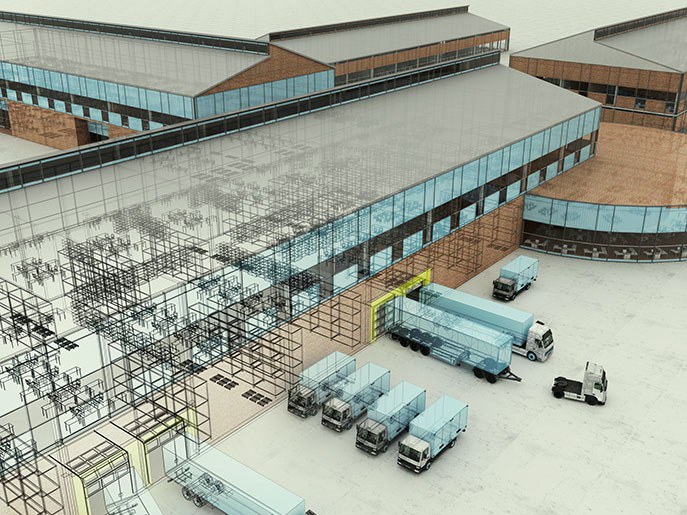- Capabilities
- Supply Chain
A supply chain is a network that connects a company and its suppliers to produce and distribute a specific product or set of products to the final buyer. The supply chain network includes different activities, entities, information, and resources. The supply chain also represents the steps required to get the product or service from its original state to the end customer.
Companies develop resilient supply chains in an effort to produce high quality products, remain competitive in the business landscape, and reduce costs.
Supply chain management is a crucial process because an optimized supply chain will result in faster production cycles, lower costs, and better business operations.
Severe Storms, Trade wars, and the COVID Pandemic have caused major disruption to global supply chains. Now more than ever, companies see the value of resilient and sustainable supply chains. Nitor has been helping companies to re-invent and improve supply chains since the early 2000’s.
Whether an organization wants to transform their supply chain from end-to-end or make incremental improvements through implementation of best-in-class supply chain technology, Nitor is an excellent partner to embark on this journey.
With the ultimate goal of balancing supply and demand, Supply chain planning is the process of planning a product from raw material all the way to sales and distribution.
When the components of supply chain planning are fully integrated, supply chain planning is sometimes referred to as “integrated business planning” or “IBP”.
With company goals surrounding increased revenue, more accurate pricing, and / or reduction in inventory levels, Nitor’s Supply Chain Consultants focus on improving our customers supply chain planning capabilities.
Nitor’s IBP consultants start with ensuring proper governance across cross-functional teams. From there, we work with organizations to integrate plans, connect systems and develop capabilities to quickly and easily identify root causes of Supply Chain Planning issues.

Nitor works with organizations to ensure that business goals and strategies are both impacting and driving the business decisions surrounding the business network and operational framework.
Nitor collaborates with customers to properly identify and connect all relevant systems.
Nitor ensures that supply chain data is used to create a continuous cycle of improvement through Planning Analysis, Root-cause diagnostics, and proven feedback loops.
Sales and operations planning allows organizations to make better business decisions based upon key supply chain drivers, such as sales, production, inventory, and marketing. Improving S&OP processes involves intelligent data, properly defined performance metrics, and alignment of strategic goals and objectives
Accurate demand predictions are required to properly manage supply chain operations, From raw materials sourcing to fulfillment and distribution, demand forecasing and demand management are key components to improve IBP.
In order for organizations to be prepared to respond to variable demand, inventory planning and inventory optimization systems must be properly configured, integrated, and tested. When operationalized correctly, inventory planning enables organizations to meet service level targets while carrying the proper amount of inventory.
Response and supply planning is a component of supply chain planning that helps businesses navigate operational challenges and achieve greater efficiency, accuracy, and speed.
Response and supply planning supports adaptable supply chain management through advanced analytical methods and efficient capacity utilization. This results in a greater ability for companies to fulfill customer needs by quickly reacting to changes and fluctuations in supply and demand.
DDMRP is the acronym for demand-driven material requirements planning (MRP), an approach to material control and replenishment that improves on the functionality of traditional material requirements planning. Because DDMRP is demand driven, it is sensitive and responsive to the variations in demand and supply that can cause inventory shortages, production disruptions, and manufacturing facilities shutdowns.
DDMRP, also referred to as demand-driven replenishment, is an optional extension of MRP, not a replacement for MRP.
The supply chain control tower should be at the center of all supply chain systems, offering real-time end-to-end visibility of every component of the supply chain. Supply chain monitoring through AI, machine learning, and even collaborative information sharing offers even greater insights, leading to functional supply chain improvements at every level of the supply chain process.